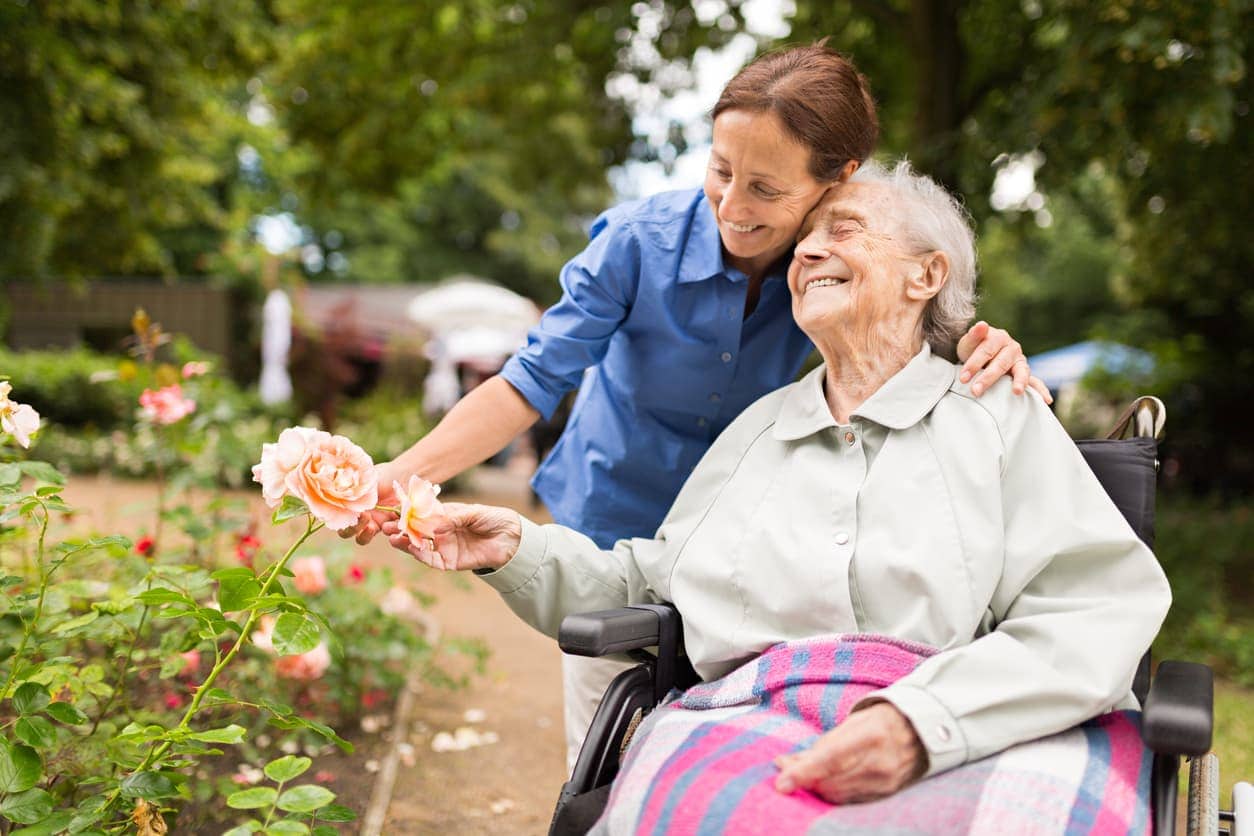
Keeping it Positive – An Atmosphere to Reduce Anxiety
People with Alzheimer’s disease regularly experience disorientation, confusion and anxiety. Creating a positive space at home or at a care facility can reduce the severity of anxiety and help them feel more confident about their surroundings, experience less confusion, and increase their sense of well-being and quality of life. Reducing distractions and playing soothing music may help, plus, there are many other ways to create an environment to reduce anxiety for your loved one.
What causes anxiety in seniors with dementia?
The disease itself – As a direct result of degenerative dementias like Alzheimer’s, people with dementia gradually experience a loss of their ability to effectively process new information and stimuli. To a person with Alzheimer’s, a moving light or shadow may appear to be a stranger lurking in a corner of the next room. Nearby voices from a television may be interpreted as people conspiring to do them harm.
Medications – Some medications intended to treat Alzheimer’s or other common diseases may exacerbate the existing tendency of Alzheimer’s patients to become anxious or combative.
Environment – To people with Alzheimer’s, even familiar environments can turn from familiar and home-like to foreign and threatening. Add in noises like construction noise, loud music, or nearby voices, or distractions like the light and shadows of nearby car headlights and a person with Alzheimer’s can quickly become overwhelmed with anxiety and become agitated or display disruptive behaviors.
Creating an anxiety-reducing environment
At home . . .
Organize your home and maintain a simple, familiar routine so your loved one with Alzheimer’s feels “at home.”
- De-clutter – especially in walkways to make your home easy to navigate. Remove all rugs.
- Eliminate or reduce shadows with drawn curtains or better window coverage. Consider using light to define doorways.
- Decorate your home in calming colors such as greens and blues.
- Use color to distinguish specific rooms and objects. Make sure there is sufficient contrast between walls and floors.
- Consider adding motion sensitive lighting in areas the person might visit at night like hallways and bathrooms.
- Keep paths clear through bedrooms, common areas and bathrooms.
- Consider adding nonslip materials to flooring and handrails or grab bars in hallways and bathrooms.
- Play soft, familiar music to stimulate parts of the brain that have been unaffected by Alzheimer’s. This may have a calming effect.
- Check the articles listed in Sources for more information and ideas.
In a memory care facility . . .
Modern memory care communities like Avalon are designed to look like homes and to instill the sense of a home community rather than an institution. Walkways and living areas are wide, easy to navigate, with directional cues. Our processional staff is trained in dementia care and available 24/7 to provide regular interaction, engagement, and assistance.
Beyond a calming physical environment, Avalon provides:
- Individual care plans that include accommodations for your loved one’s preferences and routines
- Meals served at small group tables to encourage conversation
- Adequate privacy
- Discreet medical care is available at all times
At Avalon Memory Care, we pride ourselves on the sense of home and community we create for our residents. Every home is designed to support and comfort our memory care residents. If you are looking for a memory care home in Dallas, Houston or Arlington for your loved one, you can find out more about our area locations by calling (972) 713-1383.
Sources
https://www.alz.org/help-support/caregiving/stages-behaviors/anxiety-agitation
https://www.webmd.com/anxiety-panic/anxiety-causing-meds#1
https://www.aagponline.org/index.php?src=gendocs&ref=anxiety
https://www.medicalnewstoday.com/articles/marijuana-and-anxiety
https://caregiver.com/articles/color-therapy-dementia/
Kristen Day, “The Therapeutic Design of Environments for People With Dementia: A Review of the Empirical Research” published in The Gerontologist, Volume 40, Issue 4, 1 August 2000, pp 397–416, https://doi.org/10.1093/geront/40.4.397.
https://academic.oup.com/gerontologist/article/58/suppl_1/S114/4816736
See More Articles
-
Visiting Your Aging Parent With Memory Loss at Avalon Memory Care
As a loving son or daughter, you naturally want the best of care for your senior parent. The compassionate assisted living caregivers at Avalon Memory Care want you to know that while your parent is living with us, he or she will receive nothing less than respectful, loving care within our comfortable, safe, and fully-staffed
-
Celebrating New Year’s Day in Memory Care
Families often find that celebrations with their loved ones in memory care are easier when they embrace new traditions. For instance, it may not be practical to expect your loved one to stay up until midnight on New Year’s Eve. Instead, consider throwing a New Year’s Day celebration, complete with a countdown to the first
-
Understanding Parkinson’s Disease and Dementia
Parkinson’s disease is an incurable neurological disorder, with progressively worsening complications. Perhaps the most well-known symptom of Parkinson’s is a hand tremor, but it can also cause speech changes, muscle rigidity, and impaired posture. Eventually, as the disease progresses, more than half of all individuals with Parkinson’s will require dementia care. This particular type of
Testimonials
Downloadable Resources
We Are Avalon
Discover the heart of our community; download ‘We Are Avalon’ to get to know our dedicated team and our commitment to providing a warm, family-like environment.
Transitional Care Guide
If you’re considering a transition, we’re here to help; download our Transitional Care Guide for compassionate guidance through each step of the process.
Schedule a Tour
Visit one of our 30+ campuses and experience our unique approach to memory care.












